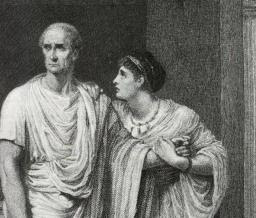


“I’m afraid we’re losing touch with the people’s hopes, dreams and fears.“We’re Romans, remember? We believe empire is more important than one man.”.

“If you don’t listen to the crowd, they’ll talk to everybody around them. It’s better if you’re part of those conversations rather than the topic of them”.“JC, those guys on the bottom steps of the forum are trying to get your attention.”.Let us leave him’? “Maybe you should pay attention to him.” Because no one had dared to stand up to him and say things like, Why?īecause, like too many of today’s dictators – ooops, I mean leaders - he didn’t understand the basic rules of employee engagement and retention. He died because he had probably shown that same disregard for the man with the dagger under his toga! This might also explain why Caesar’s last words, as reported by the bard, were “You too, Brutus?” indicating that he was surprised at his best friend’s role in the plot to kill him. He died because he dismissed the man himself as not significant enough to deserve a response. He died because he didn’t ask for more information. And it’s pretty simple:Ĭaesar didn’t die simply because he failed to follow the cryptic advice of a village idiot. And I say there’s a lesson to be learned from it. Julius Caesar experienced what you could call The Great Roman Resignation. Sound familiar? If not, you’ve been hiding in a very dark place for the last 2 years! He was warned that the Romans were restless. Let us leave him.”Ĭaesar had plenty of signs that his “subjects” were loose in the saddle – to use a very mixed metaphor. So, it’s not surprising that when the village idiot shouts, “Beware the Ides of March,” Caesar simply replied, “He is a dreamer. Your wisdom is consumed in confidence” and again begged him to stay at home. It was the soothsayers, whose job it was to interpret omens for guidance in public affairs, who first warned Caesar not to “stir forth.” But Caesar pompously announced, “Danger knows I am more dangerous than he.” Then, his own wife, Calpurnia, lamented, “ Alas, my lord. But occasionally words like these are both profound and prophetic, particularly when they come from multiple sources, as in the case of Julius Caesar. Because they are typically spoken automatically and without much thought, most of us don’t really hear or heed them. “Be careful.” “Take care.” “Watch your step.” Do you often make a conscious effort to heed these warnings? I don’t. Hearing this archaic term, my brain immediately time-traveled back to English Lit 101 - and eventually to William Shakespeare, an arrogant leader, unhappy senators, uncertain loyalties, and worst of all - unheeded warnings. In the process, I discovered that, in addition to being known as Buzzards Day, Dumbstruck Day, and Everything You Think is Wrong Day, March 15th is best known as “The Ides of March.”

A few years ago, as I was preparing to give a speech on March 15th, I did some quick research to see if that date might be relevant to my topic – employee retention.


 0 kommentar(er)
0 kommentar(er)
